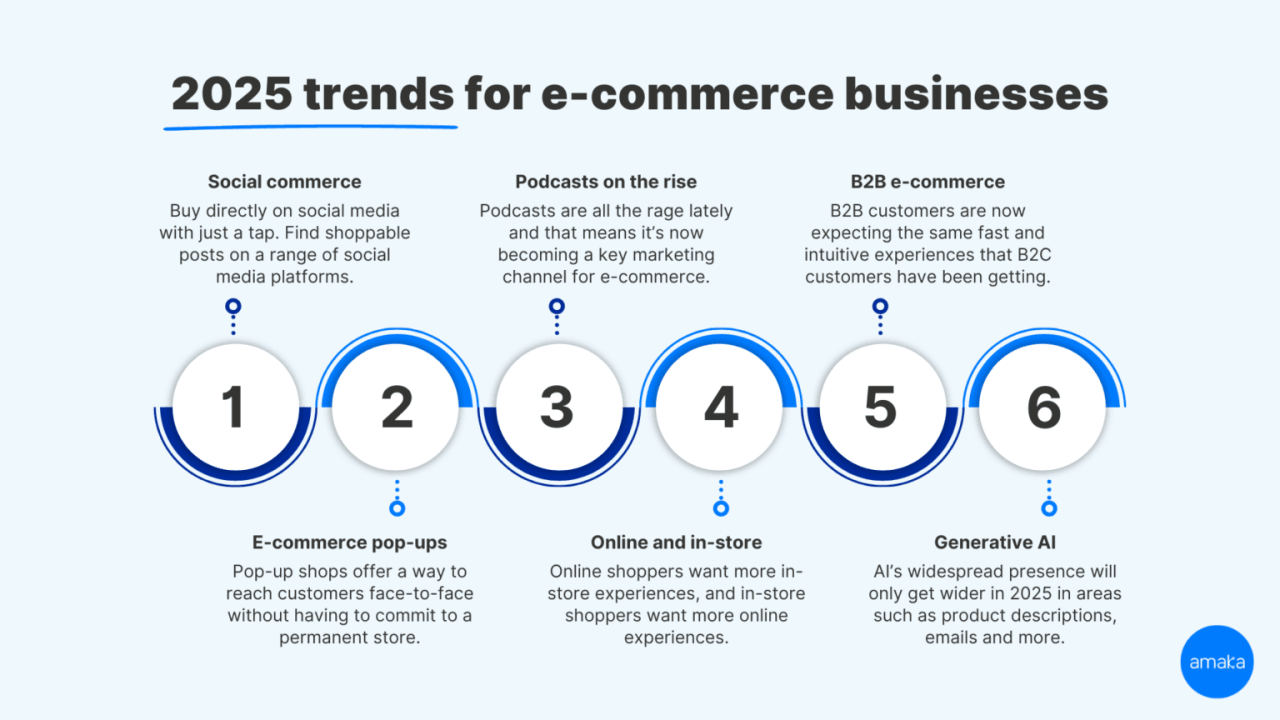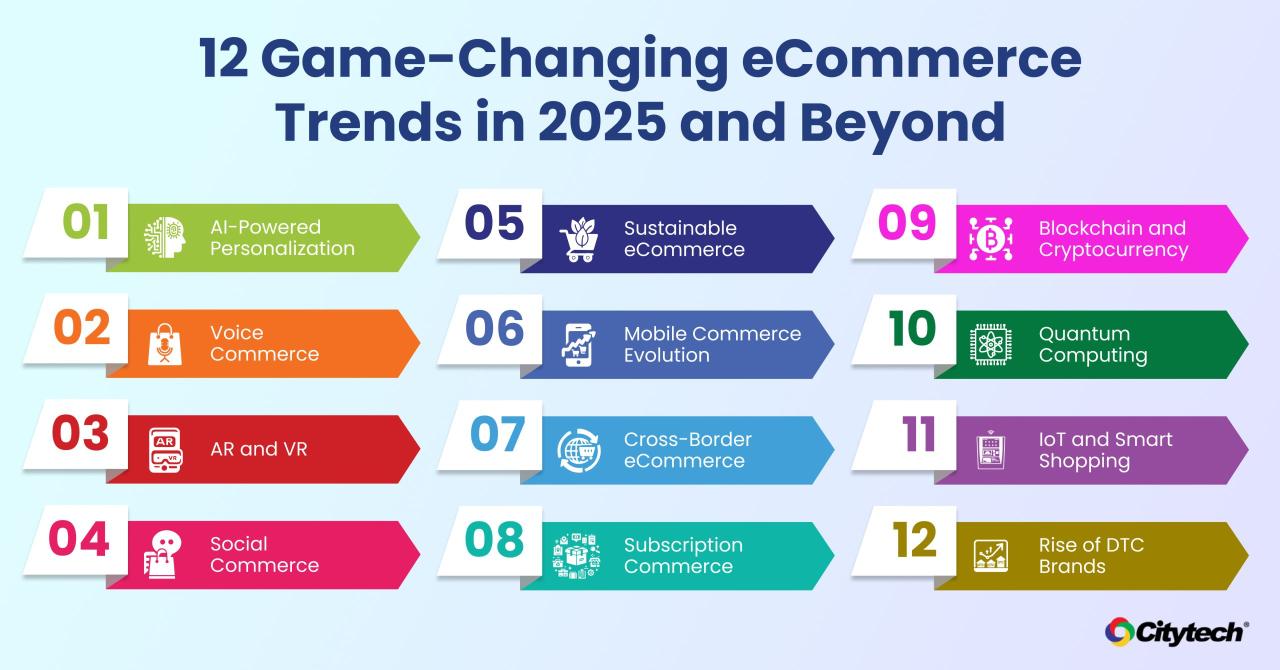Sharing economy trends shaping e-commerce in 2025: A Look into the Future

Exploring the dynamic landscape of e-commerce in 2025, this article dives into the evolving trends of the sharing economy and how they are reshaping the way we do online business.
Delving deeper, we uncover the key factors driving this transformation and the impact it has on consumer behavior and traditional e-commerce models.
Overview of Sharing Economy Trends

The concept of sharing economy in e-commerce revolves around the idea of individuals sharing resources, services, or goods with one another through online platforms. This model allows for more efficient use of resources and promotes sustainability by maximizing the use of underutilized assets.Sharing economy models in the e-commerce sector are evolving to include various services such as shared transportation, accommodation, and even shared office spaces.
Companies like Uber, Airbnb, and WeWork are prime examples of how sharing economy principles are being applied in different industries within e-commerce.
Key Factors Driving the Growth of Sharing Economy Trends in E-Commerce
- The rise of digital platforms: The proliferation of online platforms has made it easier for individuals to connect and transact with one another, facilitating the growth of sharing economy models in e-commerce.
- Changing consumer preferences: Consumers are increasingly valuing experiences over ownership, leading to a shift towards sharing economy services that provide access to goods and services without the need for ownership.
- Cost-effectiveness and sustainability: Sharing economy models offer cost-effective solutions for consumers while promoting sustainable practices by reducing waste and maximizing the use of existing resources.
- Technological advancements: Innovations in technology, such as blockchain and IoT, are enabling more efficient and secure sharing economy transactions, driving the growth of these trends in e-commerce.
Impact of Sharing Economy on E-commerce

The rise of sharing economy trends has significantly influenced consumer behavior and traditional e-commerce business models. This shift has been driven by the increasing preference for access over ownership and the desire for more sustainable consumption practices.
Reshaping Consumer Behavior
The sharing economy has led to a shift in consumer behavior towards more collaborative and community-driven consumption. Consumers are now more inclined to rent or share products and services rather than buying them outright. This change has been fueled by the convenience, cost-effectiveness, and environmental benefits associated with sharing economy platforms.
Effects on Traditional E-commerce Business Models
Traditional e-commerce businesses have had to adapt to the changing landscape brought about by the sharing economy. Many companies have incorporated sharing economy principles into their business models to stay competitive and meet the evolving demands of consumers. This includes offering rental or subscription services, facilitating peer-to-peer transactions, and promoting sustainability through product sharing.
Examples of Successful E-commerce Platforms Embracing Sharing Economy Principles
Airbnb
Airbnb revolutionized the hospitality industry by allowing individuals to rent out their properties or spare rooms to travelers. This platform enables hosts to monetize their unused space while providing unique and personalized accommodation options to guests.
Rent the Runway
Rent the Runway offers a clothing rental service that allows customers to access designer clothing and accessories for a fraction of the retail price. This model promotes sustainable fashion practices and provides consumers with the opportunity to wear high-end brands without the hefty price tag.
Uber
Uber disrupted the transportation industry by connecting riders with drivers through a convenient and cost-effective mobile app. This peer-to-peer ridesharing platform has transformed the way people commute and has paved the way for other sharing economy transportation services.
Technology Integration in Sharing Economy

Technology plays a pivotal role in shaping the sharing economy trends within the realm of e-commerce. From AI to blockchain and IoT, these advancements are revolutionizing the way peer-to-peer transactions are conducted and enhancing user experiences through data analytics and personalization.
Artificial Intelligence (AI)
AI technologies are being leveraged in the sharing economy to optimize matchmaking between service providers and consumers. By analyzing user data and behavior patterns, AI algorithms can recommend personalized offerings, improving user satisfaction and fostering trust within the sharing ecosystem.
Blockchain Technology
Blockchain technology ensures secure and transparent transactions in the sharing economy by providing a decentralized ledger that records all transactions. This eliminates the need for intermediaries, reducing costs and enhancing trust among participants in peer-to-peer exchanges.
Internet of Things (IoT)
IoT devices enable seamless connectivity and real-time tracking of assets in the sharing economy. From shared bikes to rental properties, IoT sensors monitor usage patterns, facilitate remote access, and ensure efficient resource allocation, resulting in enhanced operational efficiency and user convenience.
Data Analytics and Personalization
Data analytics tools are instrumental in extracting valuable insights from user interactions and transactional data in the sharing economy. By analyzing this information, e-commerce platforms can personalize recommendations, tailor marketing strategies, and improve overall customer experiences, leading to increased user engagement and loyalty.
Regulatory Challenges and Solutions
In the rapidly evolving landscape of e-commerce driven by the sharing economy, regulatory challenges have emerged as a key hurdle for platforms operating in this space. Navigating the complex web of regulations while fostering innovation and growth poses a significant challenge for sharing economy businesses.
Let's delve into some of the regulatory hurdles faced by sharing economy platforms in e-commerce and explore potential solutions to address these challenges.
Regulatory Hurdles Faced by Sharing Economy Platforms
- Legal ambiguity: The lack of clear regulations specifically tailored to the sharing economy model can create uncertainty and legal challenges for businesses.
- Taxation issues: Determining the appropriate tax treatment for transactions within the sharing economy can be complex and vary across different regions.
- Labor laws: Classifying workers in the sharing economy as independent contractors or employees can lead to disputes and legal implications.
- Consumer protection: Ensuring the safety and rights of consumers using sharing economy platforms is crucial, but regulations in this area may be inadequate or outdated.
Potential Solutions to Regulatory Challenges
- Educating policymakers: Collaboration between sharing economy businesses and policymakers to raise awareness and develop regulations that support innovation while addressing key concerns.
- Adopting self-regulation: Implementing internal policies and standards to ensure compliance with regulatory requirements and promote trust among users.
- Engaging with stakeholders: Building relationships with relevant stakeholders, including government agencies, industry associations, and consumer advocates, to shape effective regulations.
- Advocating for regulatory reform: Working towards updating existing regulations or creating new frameworks that are adaptable to the dynamic nature of the sharing economy.
Comparing Regulatory Frameworks Across Regions
- North America: The regulatory landscape in North America varies by state and province, with some jurisdictions embracing the sharing economy more than others.
- Europe: The European Union has taken steps to harmonize regulations for sharing economy platforms across member states, promoting consistency and cross-border operations.
- Asia-Pacific: Countries in the Asia-Pacific region are adopting different approaches to regulating the sharing economy, reflecting diverse cultural and economic contexts.
- Latin America: Emerging markets in Latin America are exploring regulatory frameworks to balance innovation with consumer protection in the sharing economy.
Closing Notes
In conclusion, the sharing economy trends in e-commerce are paving the way for a more collaborative and personalized online shopping experience. As we look ahead to 2025, these trends will continue to shape the future of e-commerce in exciting ways.
Clarifying Questions
How are sharing economy models evolving in the e-commerce sector?
Sharing economy models in e-commerce are evolving by promoting collaborative consumption, peer-to-peer transactions, and resource sharing among users.
What role does technology play in driving sharing economy trends in e-commerce?
Technology such as AI, blockchain, and IoT are instrumental in facilitating peer-to-peer transactions, enhancing data analytics, and improving personalization for e-commerce users within the sharing economy.
What are some regulatory challenges faced by sharing economy platforms in e-commerce?
Sharing economy platforms in e-commerce often face regulatory hurdles related to taxation, labor laws, and liability issues. Finding solutions to these challenges is crucial for the sustainable growth of sharing economy businesses.






